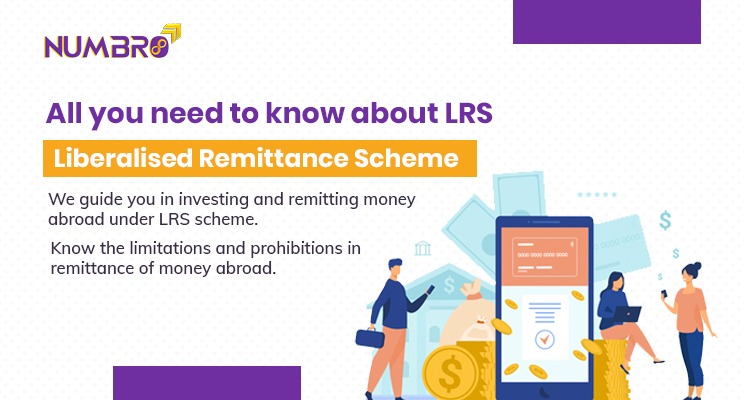Know how to deal with emigration-related rules and obligations
Many Indians are migrating from India to various countries during the year and they might not know the rules and obligations under FEMA & Income Tax Act that need to be addressed before leaving.
FEMA governs the exchange regulatory compliances, whereas the Income Tax Act will govern the tax aspect on the income earned. Here are some of the areas which we have given as glimpse that needs to be known by any individual who is leaving for abroad.
Who are Emigrating Indians ?
This is a case where Person resident in India desires to migrate abroad for an uncertain period and hence consequently, one needs to ensure as to
- whether he will be entitled to continue his activities in India as he used to do, and
- what kind of variations will come up in his day-to-day activities once he is non-resident.
Know your Residential status as per FEMA and Income tax Act.
As per FEMA
Under FEMA, a person is Non-Resident if he/she goes or stays out of India –
- Such that the stay in India is lower than 182 days in the preceding financial year, or
- For
- Taking up employment outside India, or
- carrying on any business or vocation outside India, or
- any other purpose which indicates his intention to stay outside India for an uncertain period
As per Income Tax Act
As per Section 6 of the Income Tax Act, a person is said to be resident in India, if the individual is present in India for a period of:
- 182 days or more during the previous year. OR
- 60 days or more during the previous year AND has been in India for 365 days or more during the preceding 4 years immediately before current previous year.
Thus, based on the above context, Non-Resident means a person who is not a Resident. No additional conditions are to be checked to find out if he is Ordinary resident or Not-ordinary resident.
Manage Bank accounts
Existing bank accounts of the individual need to be redesignated to (NRO) non-resident ordinary account.
While an individual may have multiple resident bank accounts, converting all of them to NRO, consolidation of such accounts is advisable as managing multiple accounts from abroad and correctly reporting them to taxation authorities might be difficult.
In addition, open a non-resident external (NRE) account that can be used to remit money from overseas for dependent care, investments, without giving up the flexibility of repatriating the money if needed.
PPF account rules
Once an individual becomes NRI, he is not allowed to open a new PPF account, but can continue the existing PPF account opened as an Indian Resident and contribute to it through NRE/NRO account.
How to handle Real estate activities?
- Once you become an NRI, managing real estate in India can be a difficult task.
- Nominating a Power of Attorney holder in India would be helpful. He/she would be legally entitled to carry out real estate transactions, rent out the property, etc. on your behalf.
- In addition, the Power of Attorney holder can also operate bank accounts, file Income Tax Returns, carry out investments.
Tax obligations
- It is important for you to file your income tax returns in India if your annual income in India is more than minimum amount not chargeable to tax and pay all your taxes. Generally, NRIs have to file returns in India using ITR Form-2.
- As per Income tax rules, income earned or accrued in India by NRI would be taxable in India. If tax liability is more than Rs. 10,000 in a financial year, you may have to pay advance tax as well.
- On some incomes, the tax liability can also accrue in your country of residence depending upon the country-specific tax rules. However, as per the Double Tax Avoidance Agreement between countries, you need not pay taxes on the same income twice.
Implications on Guarantees and Collateral Securities in India of emigrating Indian
- Giving a guarantee to an Indian bank by a resident Indian is not prohibited, whether he is a resident or a non-resident.
- It is not prohibited for a bank to continue granting a loan to a resident on the security of collateral shares of a person who has become a non-resident. On the collateral security of shares provided by the emigrating Indian, the Authorized Dealer Bank may continue the loan to a relative of the emigrating Indian or a third party.
Sale of immovable property by emigrating Indian after becoming non-resident
- The emigrating Indian after becoming non-resident can sell his immovable property without RBI permission to Resident in view of the provisions of NDI Rules whereby sale of immovable property (house property) by non-resident to resident is freely permitted.
- However, sale proceeds are not repatriable because the property was not acquired out of foreign exchange brought into India. He can remit in each financial year an amount up to US $ 1 mn.
- Remittance in excess of US $ 1mn, RBI approval is to taken.
**This is not the comprehensive list of tasks on Emigrating Indians checklist. There could be many things that need to be taken care of in India as well as the new country where you are going to settle. If you find things overwhelming, do not hesitate to take professional help from us


